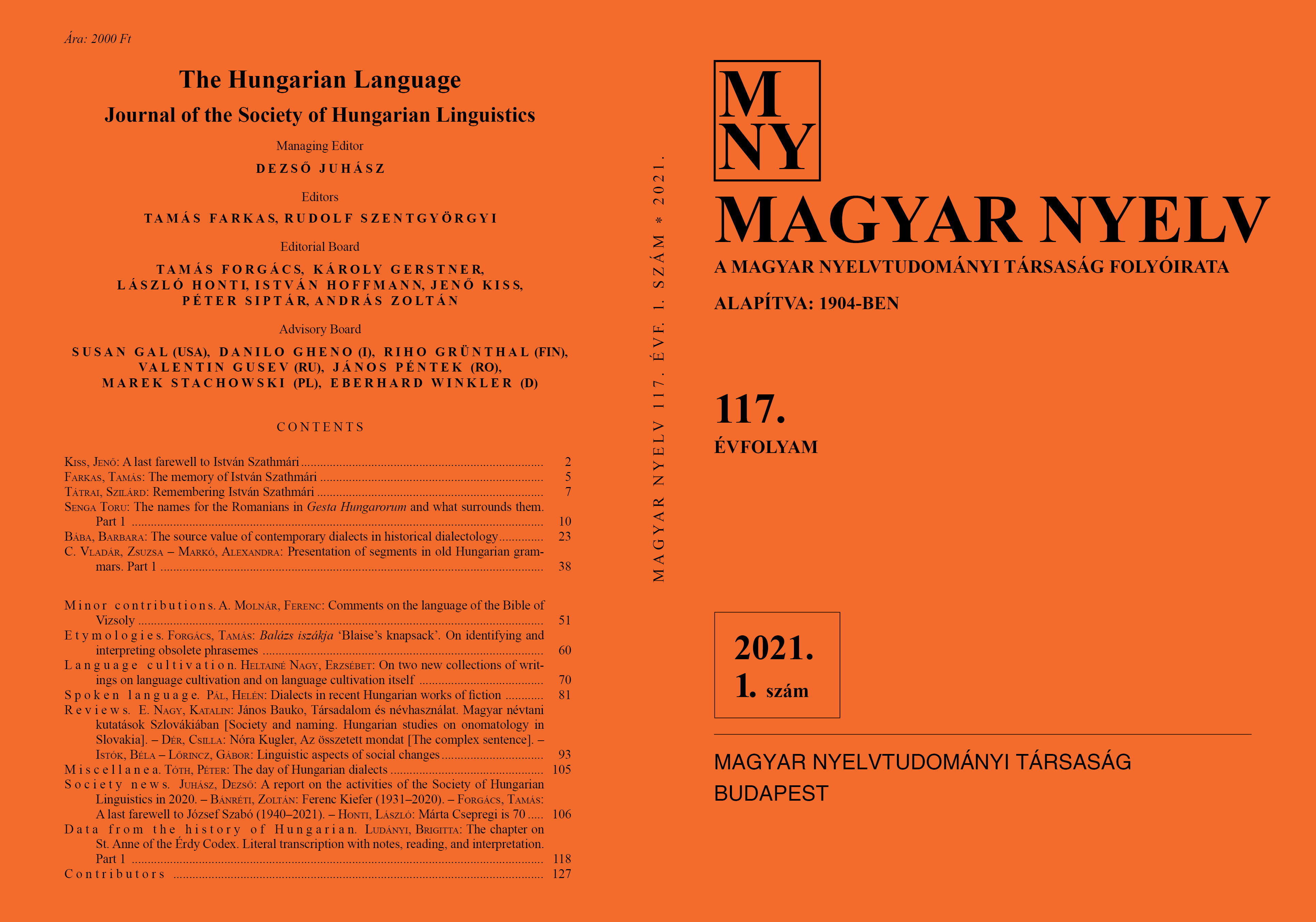The source value of contemporary dialects in historical dialectology
DOI:
https://doi.org/10.18349/MagyarNyelv.2021.1.23Keywords:
historical dialectology, contemporary dialectal data, source value, labializationAbstract
It is one of the basic tenets of historical dialectology that in contemporary dialects the different chronological phases of various phenomena may be found side by side. As a result, it is clear that contemporary dialects may represent an important source for research in historical dialectology. The assessment of contemporary data and the examination of their evidential value, however, entails certain methodological obstacles. Thus, for example, as a result of changes in phonological oppositions or due to settlement history or migration processes, the linguistic phenomena found in contemporary dialects may be used for the localization of certain early dialectal features only with limitations. In many ways, however, today’s dialectal data may provide real guidance for certain observations in historical dialectology. To illustrate this, my paper introduces various phonological phenomena in the study of which contemporary dialectal data may provide an authentic source for historical dialectology. This is followed by the examination of a specific problem, namely the question of why relying on contemporary dialectal data related to the use of the sound ö (rather than the mid ë of other dialects) when establishing the center for the use of ü in the same contexts in the Old Hungarian era might be problematic.
Downloads
Published
Issue
Section
License
Copyright (c) 2024 Barbara Bába

This work is licensed under a Creative Commons Attribution-NonCommercial-NoDerivatives 4.0 International License.
Magyar Nyelv is a Diamond Open Access periodical. Documents can be freely downloaded and duplicated in an electronic format, and can be used unchanged and with due reference to the original source. Such use must not serve commercial purposes. In the case of any form of dissemination and use, Hungarian Copyright Act LXXVI/1999 and related laws are to be observed. The electronic version of the journal is subject to the regulations of CC BY-NC-ND (Creative Commons – Attribution-NonCommercial-NoDerivatives).
The journal permits its authors, at no cost and without any temporal limitation, to make pre-print copies of their manuscripts publicly available via email or in their own homepage or that of their institution, or in either closed or free-for-all repositories of their institutions/universities, or other non-profit websites, in the form accepted by the journal editor for publication and even containing amendments on the basis of reviewers’ comments. When the authors publicize their papers in this manner, they have to warn their readers that the manuscript at hand is not the final published version of the work. Once the paper has been published in a printed or online form, the authors are allowed (and advised) to use that (post-print) version for the above purposes. In that case, they have to indicate the exact location and other data of the journal publication. The authors retain the copyright of their papers; however, in the case of an occasional secondary publication, the bibliographical data of the first publication have to be included.



